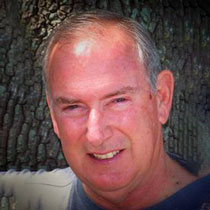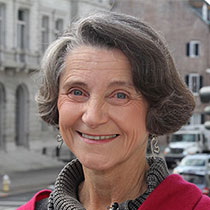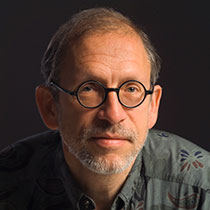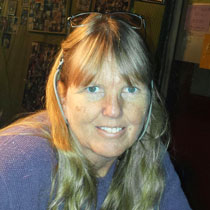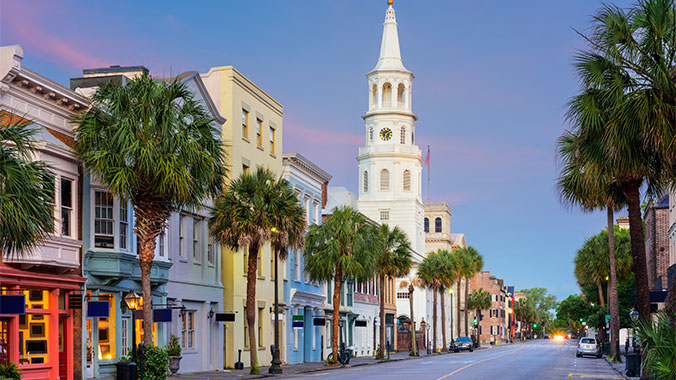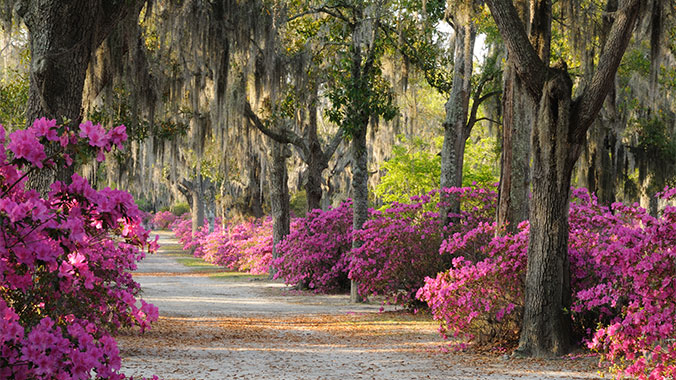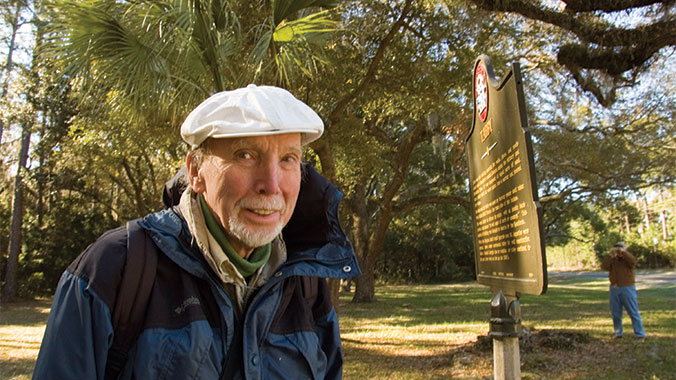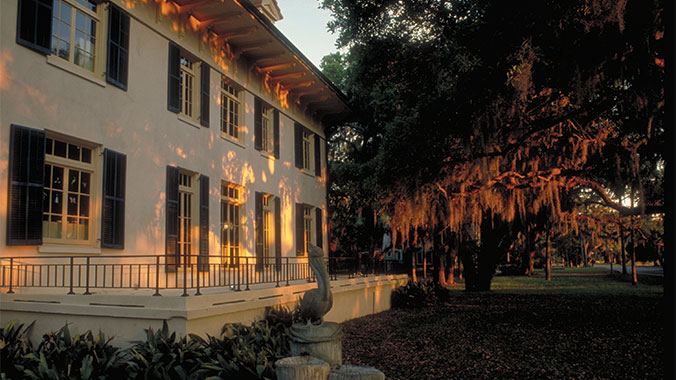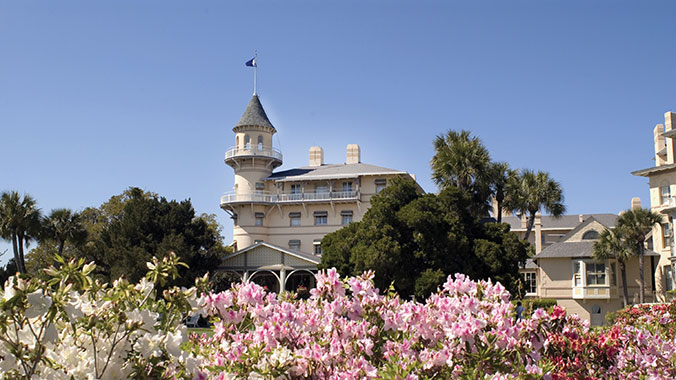A Guide to a Georgia Barrier Island: Featuring Jekyll Island With St. Simons & Sapelo Islands
by Taylor Schoettle
Testimonial: Ever wished, as you walked along a deserted stretch of beach or stared at the ruins of a stately old home, you had a naturalist/historian along with you? Buy A GUIDE TO A GEORGIA BARRIER ISLAND and you'll be in the company of both. His name is Taylor Schoettle. His informative, easy-going style and eager descriptions of what you're walking on, looking at, and interested in make this book a tremendous bargain.
A Short History of Charleston
by Robert N. Rosen
A concise small history of Charleston that is easy to read and enjoyable.
A Witness to History: Charleston's Old Exchange and Provost Dungeon
by Ruth Miller and Ann Taylor Andrus
The Old Exchange and Provost Dungeon in Charleston, South Carolina, is one of the great buildings of Colonial America. Serving as city hall, customs house, post office and prison; as the British Headquarters during the occupation of Charles Towne and then host to a great ball honoring George Washington, the Exchange has been an eyewitness to America’s history. This stoic building-—designated a National Historic Landmark in 1975—-has been described as the best example of the dignity and ornament of the traditional English “exchange-town hall” design of the eighteenth century built in the United States. From within its Great Hall to deep below in the Provost Dungeon, the Exchange has played a vital role in American history. Andrus’ and Miller’s fast-paced and readable survey of the history and significance of the Old Exchange Building will appeal to visitor and serious historian alike.
Allegiance: Fort Sumter, Charleston, and the Beginning of the Civil War
by David Detzer
An original and deeply human portrait of soldiers and civilians caught in the vortex of war.
So vividly does Allegiance re-create the events leading to the firing of the first shot of the Civil War on April 12, 1861, that we can feel the fabric of the Union tearing apart. It is a tense and surprising story, filled with indecisive bureaucrats, uninformed leaders, hotheaded politicians, and dedicated and honorable soldiers on both sides.
The six-month-long agony that began with Lincoln's election in November sputtered from one crisis to the next until Lincoln's inauguration, and finally exploded as the soldiers at Sumter neared starvation. At the center of this dramatic narrative is the heroic figure of Major Robert Anderson, a soldier whose experience had taught him above all that war is the poorest form of policy. With little help from Washington, D.C., Anderson almost single-handedly forestalled the beginning of the war until he finally had no choice but to fight.
David Detzer's decade-long research illuminates the passions that led to the fighting, the sober reflections of the man who restrained its outbreak, and individuals on both sides who changed American history. No other historian has given us a clearer or more intimate picture of the human drama of Fort Sumter.
Floridanos, Menorcans, Cattle Whip Crackers: Poetry of St. Augustine
by Masters, Ann Browning
Poetry from this collection has been published in anthologies and journals, read at the Marjorie Kinnan Rawlings Annual Conference and Florida Literary Arts Coalition Conferences, recognized at the Florida Folk Festival, and recorded for the Florida State Historical Archives. Dr. Ann Browning Masters is a retired faculty member of St. Johns River State College. She continues to read from her work in the Eckerd College Road Scholar Program. In 2015 she was knighted by the Board of Directors of the Easter Festival Committee of St. Augustine for her dedication in promoting St. Augustine s Spanish heritage. A St. Augustine native, Dr. Masters is a 12th generation Floridian.
Hidden History of Savannah
by Brenna Michaels (Author), T. C. Michaels (Author)
Savannah has repeatedly stood on the edge of ruin, brought to its knees by bloody battles, mysterious pestilence, fire, unforgiving weather and the drums of war. Men and women whose names echo in history once walked its streets. Countless other faces are seemingly forgotten, names that history held in looser grip--like Mary Musgrove, the colonial translator and entrepreneur, or Dr. Samuel Nunes, shipwrecked by chance on Savannah's coastal shores just in time to curb a deadly epidemic and save Savannah's first settlers. And then there's John Geary, the larger-than-life Union general who beat Sherman's march south to the sea. Join authors Brenna and T.C. Michaels as they explore Savannah's long, wide and very often hidden history.
Jekyll Island: The Nearest Faraway Place
by unknown
Jekyll Island's undisturbed beauty, combined with its pleasant year-round weather and refreshing ocean breezes, provides a breathtaking backdrop for a variety of wonderful experiences. Located midway between Savannah, Georgia and Jacksonville, Florida, Jekyll Island is approximately 5,700 acres and the smallest of Georgia's barrier islands. As a tribute to the Island's allurement, the Jekyll Island Authority has published Jekyll Island The Nearest Faraway Place, a coffee table book recognizing the inspired talent of residents and guests and their ability to capture unique perspectives of our cherished Island. During the period of March through September 2010, a competition was conducted to discover photographs of, and poems about, Jekyll Island. Scenic images and inspiring narratives portraying Jekyll's beach and marsh, sunrise and sunsets, wildlife, nature, historic landmarks, and views from above were sought for inclusion in this project. Submissions included 70 from Georgia, 17 from different states, 4 from Canada and 1 from the United Kingdom. Results of the competition were announced and the winning selections are featured in the commemorative publication. Copyright of the selected works and all rights to publish became property of Jekyll Island Authority. Jekyll Island The Nearest Faraway Place is now currently available at the Visitor Information Center, the Commissary, the Jekyll Island Book Store, the Jekyll Island Museum Store, the Georgia Sea Turtle Center and Hattie's Books in Brunswick.
Mr. Flagler’s St. Augustine
by Graham, Thomas
In the late 1800s, Henry Morrison Flagler walked away from Standard Oil, leaving the enormously successful company in the hands of John D. Rockefeller while he headed to Florida to pursue other interests. Flagler’s new venture would lead him to completely restructure the sleepy town of St. Augustine and transform Florida’s entire east coast. This monumental biography tells the story of how one of the wealthiest men in America spared no expense to turn the country’s “Oldest City” into a highly desirable vacation destination for the rich. Upon arrival, Flagler found accommodations in St. Augustine to be inferior, so he set out to build the opulent Ponce de Leon Hotel, and thus began his endeavor to attract wealthy travelers to the small southern city. He funded hospitals and churches and improved streets and parks. He constructed railroads in remote areas where men feared to tread and erected palatial hotels on swampland. The rich and famous flocked to Flagler’s invented paradise. And he had the vision to stretch his new railroad southward, establishing hotels and accommodations along the way. In tracing Flagler’s second career, Thomas Graham reveals much about the inner life of the former oil magnate and the demons that drove him to expand a coastal empire that eventually encompassed Palm Beach, Miami, Key West, and finally Nassau. Graham also gives voice to the individuals that history has forgotten: the women who wrote tourist books, the artists who decorated the hotels, the black servants who waited tables, and the journalists who penned society columns for the newspapers. Arguably no man did more to make over a city—or a state—than Flagler. Almost single-handedly, he transformed Florida from a remote frontier into the winter playground of America’s elite. Filled with fascinating details that bring the Gilded Age to life, Mr. Flagler’s St. Augustine provides an authoritative look at an intriguing man and a captivating time in American history.
The Invention of Wings
by Sue Monk Kidd
Writing at the height of her narrative and imaginative gifts, Sue Monk Kidd presents a masterpiece of hope, daring, the quest for freedom, and the desire to have a voice in the world—and it is now the newest Oprah’s Book Club 2.0 selection.
The Secret Gardens of Charleston
by Louisa Cameron
A stunning tour with the owners of many of historic Charleston's most beautiful, but rarely seen, private gardens. Charleston gardeners--some working with noted designers, others relying on their own skills and creativity--are masters of fashioning intricate designs and plant selections to match the architectural beauty of this legendary city. This is a valuable resource for inner-city gardeners and an important tool for those involved in the restoration of older houses and gardens.
